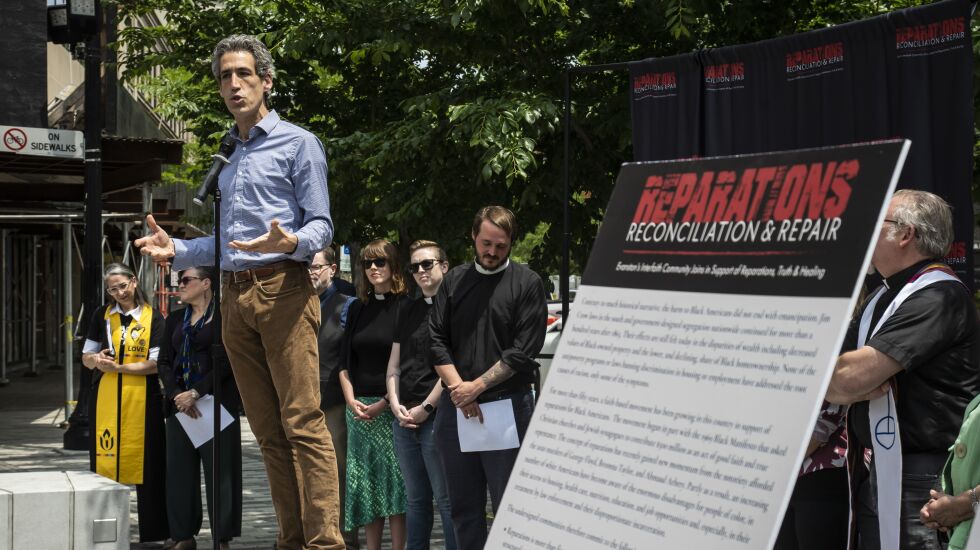
Evanston made history last year when it became the first U.S. city to approve a plan to make reparations available to Black residents.
But that money, mostly from a 3 % tax on the sale of recreational marijuana, has come in more slowly than some had hoped.
“It’s not as much as we would like. Obviously, money is coming in over time. Eventually, $10 million will come in, but we would much prefer to do it significantly faster than the resources are arriving,” Evanston Mayor Daniel Biss said Monday.
That’s why Biss and about 100 or so others gathered in Evanston’s Fountain Square to hear that 16 congregations of various faiths in and around the city have committed to join the reparations effort.
“We are well aware that no matter what we do and raise, it will not be enough to overcome the last centuries of harm done and continuing to be done to Black Evanstonians, much less Black Americans. But it is a first step in good faith, a confession, material repentance and love of neighbor as our traditions, each in their own way, empower and instruct us to do,” said Kathryn Banakis, rector at St. Luke’s Episcopal Church in Evanston.
The money raised — Banakis said she hopes each congregation will raise about $65,000 between now and and Martin Luther King Jr. Day 2023 — is expected to be used for a variety of purposes in helping Black people in Evanston. It won’t be distributed through the city’s reparations program.
The congregations’ pledge also includes “educating our own communities about racism within our religious communities.”
Biss said the city is in the process of distributing $400,000 to the first 16 recipients. The city has committed to hand out $10 million over the next 10 years.
To start, each qualifying Evanston household — Black residents with ties to the city’s Black community between 1919 and 1969 and those who were victims of housing discrimination as a result of the city’s policies after 1969 — would be eligible for $25,000 toward mortgage payments, home repairs, down payments on property or other housing expenses.







